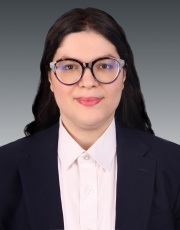
Dr. Achagri Ghizlane
Chinese Academy of Sciences (CAS), China
Title: Hybrid Electrocoagulation-Membrane Systems: Next-Generation Solutions for Oily Wastewater Remediation
Abstract:
Hybrid electrocoagulation-membrane systems represent a transformative approach for oily wastewater treatment, synergistically combining electrocoagulation's efficient destabilization of oil emulsions with membrane filtration's superior polishing capability. This integrated system overcomes fundamental limitations of conventional approaches - specifically, electrocoagulation's poor removal efficiency for dissolved organic compounds and membranes' vulnerability to irreversible fouling - through a synergistic two-stage process. The electrocoagulation stage generates active flocs that both destabilize oil emulsions and adsorb dissolved contaminants, creating optimal feedwater conditions for subsequent membrane filtration. This pretreatment effect reduces membrane fouling while enabling exceptional oil rejection rates, as demonstrated in recent pilot-scale studies. This discussion highlights operational advantages, including lower energy consumption compared to conventional methods, adaptability to fluctuating oil concentrations, and potential for zero-liquid-discharge systems through membrane concentrate recycling. Industrial applications demonstrate 30-50% cost savings compared to conventional treatment methods, while next-generation innovations, such as pulsed electrocoagulation and advanced membrane materials, continue to enhance system performance. This positions hybrid electrocoagulation-membrane technology as both an economically viable and environmentally sustainable solution for petroleum, food processing, and marine sectors, particularly where strict effluent standards must be met.
Biography: